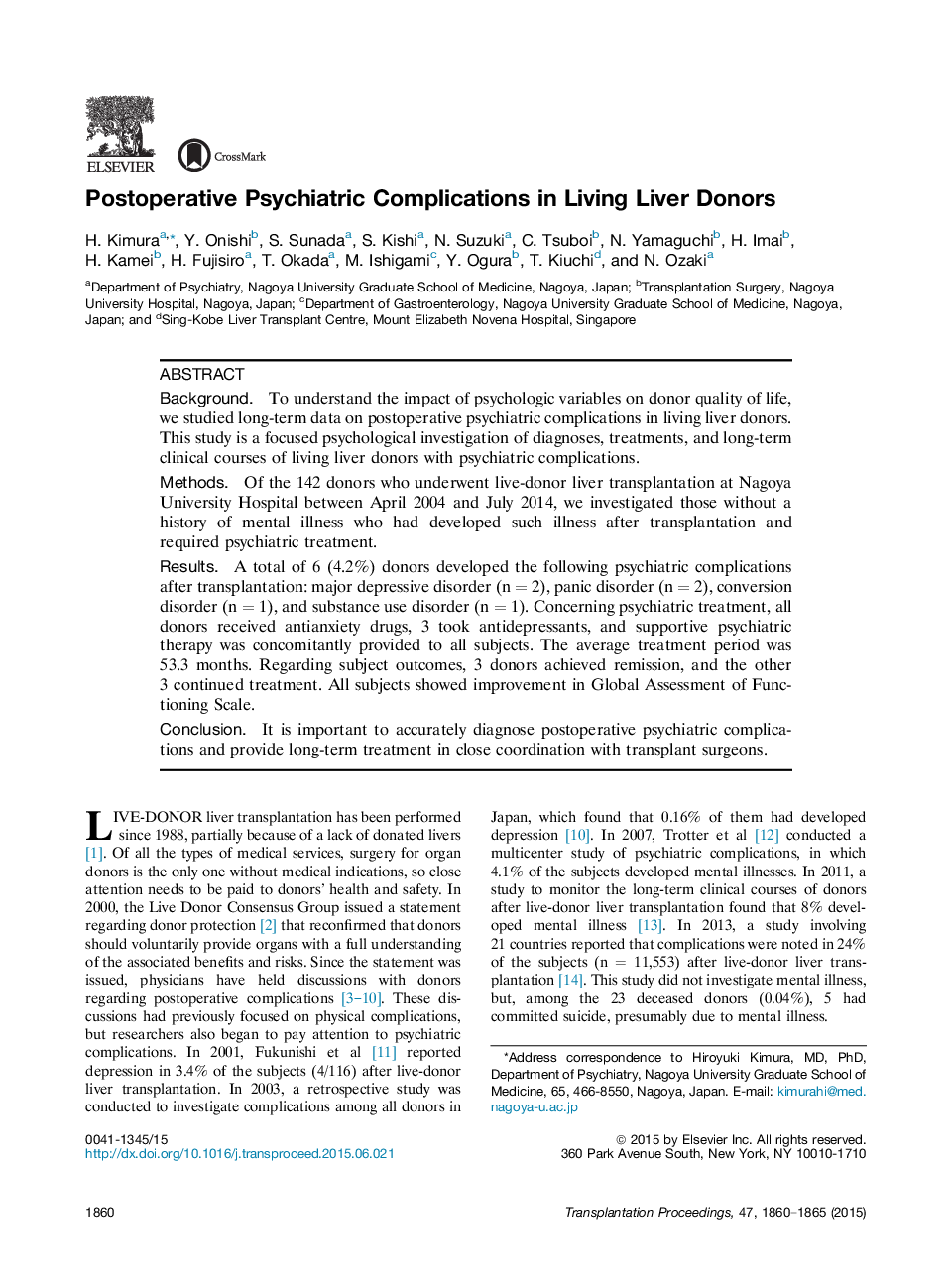| Article ID | Journal | Published Year | Pages | File Type |
|---|---|---|---|---|
| 6247219 | Transplantation Proceedings | 2015 | 6 Pages |
â¢We studied long-term data on postoperative psychiatric complications in living liver donors.â¢A total of 6 (4.2%) donors developed psychiatric complications after transplantation.â¢All subjects showed improvement in Global Assessment of Functioning (GAF) Scale.â¢It is important to provide long-term treatment in close coordination with transplant surgeons.
BackgroundTo understand the impact of psychologic variables on donor quality of life, we studied long-term data on postoperative psychiatric complications in living liver donors. This study is a focused psychological investigation of diagnoses, treatments, and long-term clinical courses of living liver donors with psychiatric complications.MethodsOf the 142 donors who underwent live-donor liver transplantation at Nagoya University Hospital between April 2004 and July 2014, we investigated those without a history of mental illness who had developed such illness after transplantation and required psychiatric treatment.ResultsA total of 6 (4.2%) donors developed the following psychiatric complications after transplantation: major depressive disorder (n = 2), panic disorder (n = 2), conversion disorder (n = 1), and substance use disorder (n = 1). Concerning psychiatric treatment, all donors received antianxiety drugs, 3 took antidepressants, and supportive psychiatric therapy was concomitantly provided to all subjects. The average treatment period was 53.3 months. Regarding subject outcomes, 3 donors achieved remission, and the other 3 continued treatment. All subjects showed improvement in Global Assessment of Functioning Scale.ConclusionIt is important to accurately diagnose postoperative psychiatric complications and provide long-term treatment in close coordination with transplant surgeons.
